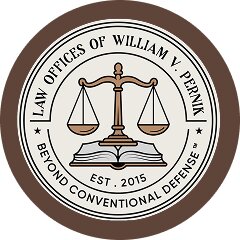Best Arrests & Searches Lawyers in California
Share your needs with us, get contacted by law firms.
Free. Takes 2 min.
Or refine your search by selecting a city:
List of the best lawyers in California, United States
About Arrests & Searches Law in California, United States
Arrests and searches are important parts of the criminal justice process in California. These legal actions are governed by the United States Constitution, California statutes, and state court decisions. If law enforcement suspects someone has committed a crime, they may arrest the individual or search their person, property, or vehicle. However, there are strict rules that police and government authorities must follow to protect your constitutional rights. California law limits when and how arrests and searches can take place, requiring probable cause, warrants in many cases, and respect for privacy rights.
Why You May Need a Lawyer
You may need a lawyer if you or someone you know is arrested, detained, or subject to a search in California. Common situations where legal help is essential include being accused of a crime, having property seized by law enforcement, facing an unlawful search or arrest, or if you believe your rights have been violated by the police. A lawyer can help you understand your rights, challenge illegal searches or arrests, defend you in court, and negotiate with prosecutors. Legal representation is especially important if you face criminal charges or if law enforcement has failed to follow proper procedures.
Local Laws Overview
California has some of the most detailed and protective laws regarding arrests and searches. Important aspects include:
- Police must have probable cause to arrest someone or search their property, except in certain specific situations.
- The Fourth Amendment protects against unreasonable searches and seizures. In California, this also applies to your vehicle and digital devices.
- A search warrant is often required, but there are exceptions for emergency situations, search incident to arrest, and consent searches.
- California's "exclusionary rule" prevents evidence obtained through illegal searches from being used in court against you.
- Racial profiling and discrimination by law enforcement are strictly prohibited under state laws.
- Miranda rights must be read to an individual who is in custody and being interrogated.
- Juvenile arrests and searches are subject to additional protections in California.
Frequently Asked Questions
What is probable cause for an arrest or search in California?
Probable cause means the police have reasonable grounds to believe a crime has been committed and that the person or place they want to search is linked to that crime.
Do police always need a warrant to search my home or property?
Generally, yes. Police need a search warrant to enter and search your home unless you consent, there is an emergency, or another exception applies.
What rights do I have if I am being arrested in California?
You have the right to remain silent, the right to be informed of the charges against you, the right to an attorney, and the right to a fair bail hearing.
Do I have to answer police questions during a search or after an arrest?
No. You have the right to remain silent and do not have to answer police questions beyond providing identification.
Can police search my car without a warrant in California?
There are situations where police can search your vehicle without a warrant, especially if there is probable cause to believe it contains evidence of a crime. However, your rights are still protected against unreasonable searches.
What should I do if I believe my rights were violated during an arrest or search?
Contact a criminal defense attorney immediately. You may be able to challenge the legality of the search or arrest in court.
Are police required to show identification or a warrant during a search?
In most cases, police should identify themselves and show a valid search warrant if one is required. You can ask to see the warrant and read it.
What happens to evidence obtained during an illegal search?
Evidence obtained illegally is subject to exclusion and may not be used against you in court under the exclusionary rule.
Can I record a police officer during an arrest or search?
Yes, in California, you can record police officers performing their duties in public as long as you do not interfere with their work.
How can a lawyer help me with an arrest or search issue?
A lawyer can help you understand and protect your rights, challenge unlawful actions by law enforcement, advocate for your release, and defend you against criminal charges.
Additional Resources
If you need more information or help, the following resources can be helpful:
- The California Courts Self Help Center explains rights and legal processes related to arrests and searches.
- The American Civil Liberties Union (ACLU) of California offers guides and information on what to do if you are stopped, searched, or arrested.
- The California State Bar provides lawyer referral services and guidance on finding legal help.
- Local legal aid organizations and public defender offices can assist low-income individuals facing arrest or search issues.
Next Steps
If you are facing issues with arrests or searches in California, document every detail related to your interaction with law enforcement. Do not discuss your case with police or investigators without a lawyer present. Contact a qualified criminal defense attorney as soon as possible to review your situation and advise you of your rights and options. Many attorneys offer free consultations. Know your rights and do not hesitate to seek legal assistance when you believe your rights have been violated or you are charged with a crime.
Lawzana helps you find the best lawyers and law firms in California through a curated and pre-screened list of qualified legal professionals. Our platform offers rankings and detailed profiles of attorneys and law firms, allowing you to compare based on practice areas, including Arrests & Searches, experience, and client feedback.
Each profile includes a description of the firm's areas of practice, client reviews, team members and partners, year of establishment, spoken languages, office locations, contact information, social media presence, and any published articles or resources. Most firms on our platform speak English and are experienced in both local and international legal matters.
Get a quote from top-rated law firms in California, United States — quickly, securely, and without unnecessary hassle.
Disclaimer:
The information provided on this page is for general informational purposes only and does not constitute legal advice. While we strive to ensure the accuracy and relevance of the content, legal information may change over time, and interpretations of the law can vary. You should always consult with a qualified legal professional for advice specific to your situation.
We disclaim all liability for actions taken or not taken based on the content of this page. If you believe any information is incorrect or outdated, please contact us, and we will review and update it where appropriate.
Browse arrests & searches law firms by city in California
Refine your search by selecting a city.
















